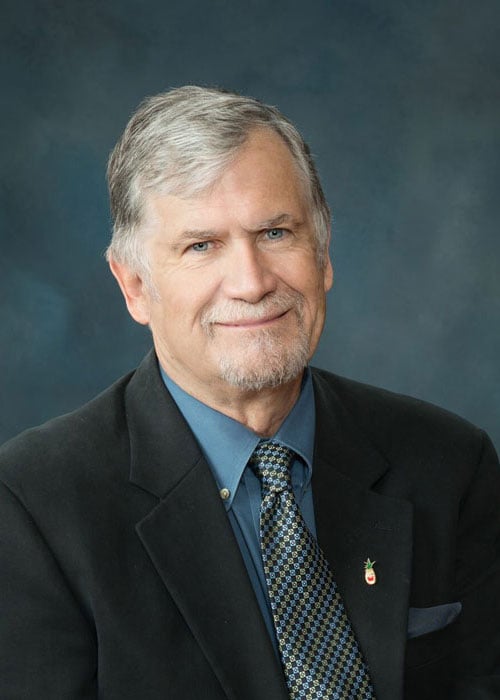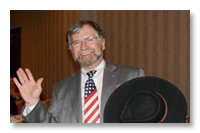Operations Planner
« »
| S | M | T | W | T | F | S |
|---|
| | 1 | 2 | 3 | 4 | 5 | 6 |
| 7 | 8 | 9 | 10 | 11 | 12 | 13 |
| 14 | 15 | 16 | 17 | 18 | 19 | 20 |
| 21 | 22 | 23 | 24 | 25 | 26 | 27 |
| 28 | 29 | |
|
Effectively Interacting with the Media - Keys to Success
publication date: Feb 12, 2019
|
author/source: Dr. John Hogan, CHE CHA CMHS CHO
| |
Keys To Success | Effectively Interacting with the Media | By John Hogan, CHA MHS CHE CHO

About 18 months ago, I authored a column in this publication titled: Recognizing the many ways to reach and influence potential guests. The article generated strong reader interest, which prompted me to follow it with a related topic that continues to grow in significance, as global communication shares information at lightening speeds.
Effectively Interacting with the Media
In the first column, I referenced the late Skip Boyer , a wonderful speech writer, author and story teller, who used those skills to share a straightforward and entertaining story explaining the differences between the various forms of marketing. In the course of less than ten minutes, Skip would deliver a concise and clear presentation on "publicity", "public relations", "advertising", " promotion", and "salesmanship".
A major objective of hotel owners, managers and sales professionals is to profitably provide hospitality services to as many guests as possible. Recognizing the differences in the various components of the sales and marketing efforts will undoubtedly make that service provider more focused on net results, guest satisfaction and profitability, rather than on headlines. As a professional who is involved with service as an expert witness, I can assure readers that advance planning, preparedness and responsiveness of hoteliers can play a role in litigation.
There are many times in this global economy when our hotel or hospitality business might become the news, rather than be featured in it and that realization is the reason behind this column. The following five major points are offered as a primer for positive contact and professional relations with the media.
1. Understand the Media
We have been led to believe that much of the media is like the "paparazzi" , searching for sensational stories and photographs. In reality, most of the media are hard-working, focused professionals completing their assignments on regular every day stories. The stronger the relationships, the more likely that coverage of any and all stories will be fair and reasonable.
Proactive steps for hoteliers to take include:
- Building a professional working relationship with as many reporters, editors, news analysts, etc in as many media outlets as possible
- Getting to know the reporters in your market
- Learning their special or particular interests
- Identifying potential media opportunities - radio news and programming, newspapers, online services and magazines. There is also some potential for local television or cable coverage of some stories.
- Planning potential positive coverage by matching hotel events, activities, and personalities with the known interests and/or local story leanings of the media.
2. Satisfying Media Needs
The range and kind of potential media opportunities depend on the size of the community, the types of competition the media faces and the interests of the overall area. These can include:
- Business stories of general or unique perspectives
- Travel writing
- Cooking features, especially if you have an unusual menu item or well known chef
- General or seasonal features that can range from the first born baby of the year to graduation success stories to ghosts in hotel tales around Halloween
- Topical and Current Events
If you are trying to promote a story placement, be certain to prepare colorful, image filled, yet concise press releases for the media. Plan photo opportunities and have a planned verbal message ready.
3. Building Relationships
Relationships with the media need to be ongoing and two-way in structure.
- If you see or read a particularly good story on any topic, acknowledge it with a complimentary note to the station/reporter or at least a phone call.
- Support media events and attend the appropriate ones. Donate prizes, offer broadcast locations or ask to host the events at your hotel
- Offer industry expertise - the hotel and hospitality industries are frequently barometers of other business indicators. Offer to comment on industry trends.
4. Dealing with a Crisis Plan
People literally are born, live and die in hotels. There can be many crises, such as fire, accidental death, food poisoning, criminal activitiy, drowning, physical assaults and more.
Rule #1 Have a Crisis Plan on dealing with "bad news"
- Have an in-depth crisis communications plan that includes dealing with the media, the community and your hospitality staff .
- Regardless of the size of your hotel or hospitality business, be certain there is someone in charge and professionally skilled in handling hard news interviews. Identify a spokesperson and at least one (preferably two) back-ups NOW . Do not wait for the crisis to occur.
- Deal with the crisis head-on. Hiding will not help the situation or anyone's perspective of you. Respond to reporters' questions as soon as possible or they may begin to suspect something that is probably not true.
- Do not lie. If you even think of telling a lie in a crisis situation, think of any politician or celebrity you dislike that has lied to the media and was caught.
- Practice implementing your crisis plan by going through a mock crisis once a year. Do not forget the news media element during the practice.
5. Do's & Don'ts of Responding to the Media
Do's
- Keep a positive tone.
- Listen. Make sure you know what question you are answering.
- Set boundaries on the interview (approximately 15 minutes.)
- Choose a video location that is appropriate to the circumstances.
- Do have an audio recording of the interview and advise reporters of this company policy.
- Express concern, compassion, and sensitivity.
- Show a willingness to get the facts and respond in a timely fashion.
- Speak in sound bites. Get to the point. Capture the essence of what you want to say in the first one or two sentences of your response, and add details later if need be.
- Keep it simple. Most journalists are looking for clear, simple quotes that will be understood by a wide audience.
- Repeat the message you want to give repeatedly. Remember that while "They control the questions, you control the answers."
- When responding to questions you can't answer, try responses like
- " I'm not sure, I'll look into it."
- "I can't discuss that at this time."
- "I'm looking into that matter, but I can't share that information at this time."
- "Our first concern is the safety of our guests and employees."
Don'ts
- Never say anything that implies guilt, omission, fault, or negligence.
- If you do not know the answer, do not make it up.
- Forget about trying to "correct" the situation.
- Do not speak "off the record." Remember - there is no such thing. Crises cause confusion. Do not add to it. Tell a reporter only what you want to see on the front page of the local paper or the lead story on the 6 pm news
"Smooth seas do not make skillful sailors."
African proverb What is the state of your crisis plan today?
Keys to Success Hospitality Tip of the Week:
Review all emergency plans regularly with staff. Update quarterly or as needed - document changes.
KEYS TO SUCCESS is the umbrella title for our programs, hospitality services and columns. This year's writings will focus on a wide variety of topics for hotel owners, managers and professionals including both my "HOW TO" articles and HOSPITALITY CONVERSATIONS. My segments Lessons from the Field, Hotel Common Sense and Principles for Success will be featured at appropriate times in the year as well.
Feel free to share an idea for a column at john@hoganhospitality.com anytime or contact me regarding consulting, customized workshops, speaking engagements ... And remember - we all need a regular dose of common sense.
 John Hogan is a successful hospitality executive, educator, author and consultant and is a frequent keynote speaker and seminar leader at many hospitality industry events. He is Co-Founder of a consortium (www.HospitalityEducators.com) of successful corporate and academic professionals delivering focused and affordable counsel in solving specific challenges facing hospitality today. John Hogan is a successful hospitality executive, educator, author and consultant and is a frequent keynote speaker and seminar leader at many hospitality industry events. He is Co-Founder of a consortium (www.HospitalityEducators.com) of successful corporate and academic professionals delivering focused and affordable counsel in solving specific challenges facing hospitality today.
Consulting Expertise and Research Interest
1. Sales Management and training
2. Turn-around and revenue management
3. Professional Development for the Organization and the Individual
4. Customer Service
5. Making Cultural Diversity Real
6. Developing Academic Hospitality programs
7. Medical Lodging Consultants
If you need assistance in any of these areas or simply an independent review or opinion on a hospitality challenge, contact me directly for a prompt response and very personalized attention.
www.Hospitalityeducators.com
www.HoganHospitality.com
Your Hospitality Resource for Hotel Owners, Innkeepers, Managers and Associations
CONTACTJohn Hogan, CHE CHA CMHS CHO
United States - Phoenix, AZ Phone: 602-799-5375
Email: john@hoganhospitality.com
Follow us on:  |
A major objective of hotel owners, managers and sales professionals is to profitably provide hospitality services to as many guests as possible. Recognizing the differences in the various components of the sales and marketing efforts will undoubtedly make that service provider more focused on net results, guest satisfaction and profitability, rather than on headlines. Readers are aware that advance planning, preparedness and responsiveness of hoteliers can play a role in litigation and this column provides five major points as a primer for positive contact and professional relations with the media.
|
|


 John Hogan is a successful hospitality executive, educator, author and consultant and is a frequent keynote speaker and seminar leader at many hospitality industry events. He is Co-Founder of a consortium (
John Hogan is a successful hospitality executive, educator, author and consultant and is a frequent keynote speaker and seminar leader at many hospitality industry events. He is Co-Founder of a consortium (